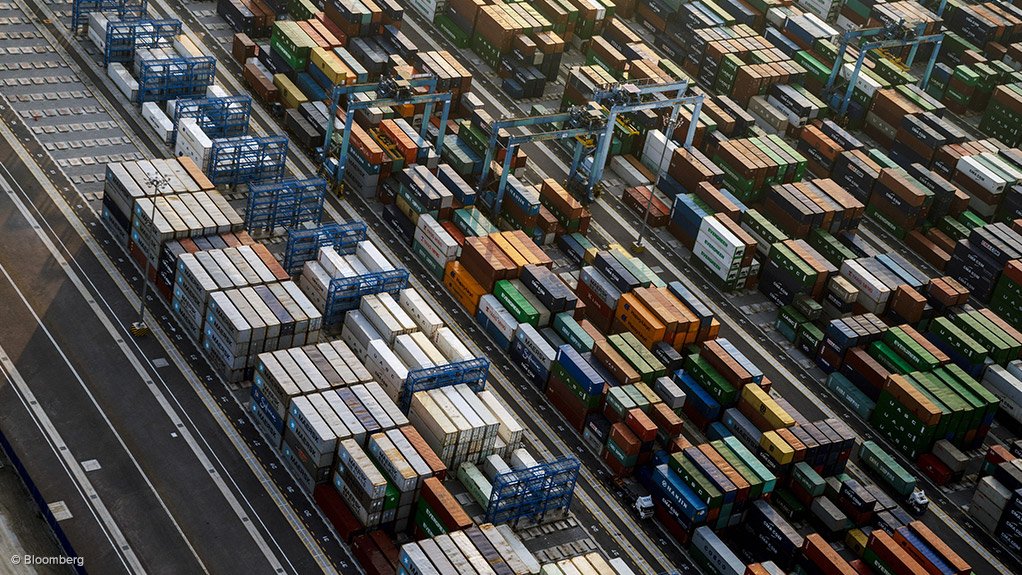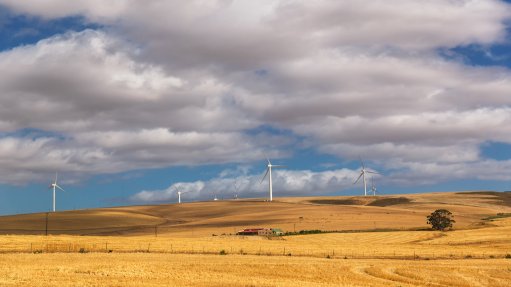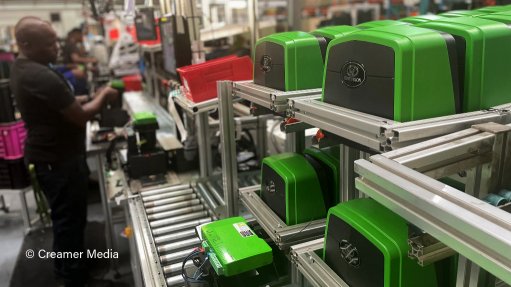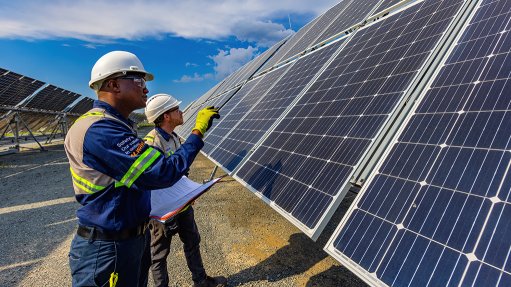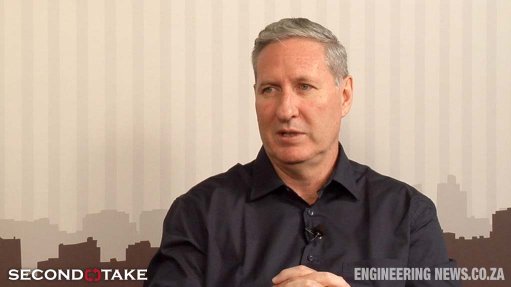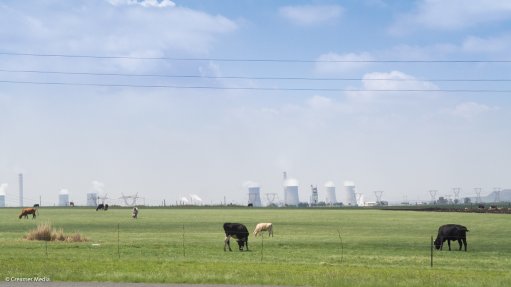Losing Agoa access would be more ‘irritating’ than ‘devastating’, economist says
While losing access under the African Growth and Opportunity Act (Agoa) to the US would certainly harm South Africa’s economy, the impact would be more akin to an “irritation” than a “devastation”, DNA Economics director Matthew Stern has said.
In a webinar hosted by PSG Financial Services on April 30, Stern addressed the impact of worsening diplomatic ties between South Africa and the US, as well as US President Donald Trump’s tariff policies and how these might affect the domestic economy.
“Losing Agoa would be an irritation. Yes, it would disrupt some supply chains somewhat, but it wouldn't have devastating economic effects. A 30% tariff on all of South Africa's exports to the US is, clearly, a severe concern. But again, it's important to recognise that, at this stage, only around 8% of South Africa's total exports go to the US market,” he explained.
He conceded that the US remains an important market for South Africa, being the third most significant globally.
“But the US has already conceded that for mineral products – which account for about two-thirds of those exports – tariffs will not be applied. So, we’re talking about a relatively small or select group of products that are vulnerable to a tariff hike in the US. Most of them will be able to adjust. There will be costs involved, but that first round of impact will not be devastating for the South African economy.
“The much bigger issue – the much larger concern – is how this plays out through the rest of the world economy. These kinds of shocks look very similar to what we all went through under Covid-19,” he said.
Stern said Agoa was not the “elephant in the room” and that its significance had generally been overstated.
“It has strong political importance and it’s been a useful stick that the Americans have wielded against us consistently over the last 20 years. But in economic or trade terms, it’s really not that important for South Africa. At this stage, about 25% of South Africa’s exports to the US enter under Agoa. Even then, the preferences we receive – the lower tariffs relative to what we would otherwise pay – are not particularly large,” he said.
Stern explained that most of what South Africa exports to the US comprises mineral goods, which already receive zero tariffs. However, agricultural produce remains vulnerable. While motor vehicles benefit from a zero tariff under Agoa, Stern believed the expected 2.5% tariff increase – if Agoa were removed – would be manageable.
He insisted that Agoa was not nearly as concerning as the global impacts of Trump’s tariff policies.
On April 2, Trump announced sweeping reciprocal trade tariffs, starting at 10% and reaching as high as 54% for some countries. Amid this, South Africa was hit with a US import tariff of 30%, although Trump granted a 90-day reprieve, temporarily reducing it to 10% until negotiations could take place.
“The shocks of Trump’s tariffs on the world trading system are significant, are substantive, and are far from fair,” Stern opined.
“America has undoubtedly been one of the greatest beneficiaries of a world trading system that is open, enabling, and facilitating trade. It has allowed countries to integrate into global supply chains in a way we’ve never seen before – and America has been one of the biggest winners of this system. So, it is odd and strange that America, for some reason, feels aggrieved by a system from which it has benefited hugely, and is taking this opportunity to impose severe penalties on countries still grappling to participate actively and reap the same kind of gains that America has enjoyed over the last 50 to 100 years,” he posited.
Stern believed there was a strong political component to the tariffs, and that it was not merely economics on Trump’s mind.
“Tariffs are one of the few instruments he has in his big hands. He sees tariffs as something he can impose on countries, friend or foe, as a way to get leaders to come to Washington, bend the knee, and engage with him on a much wider variety of issues,” he said.
Stern acknowledged that there were trade and economic issues between South Africa and the US but emphasised that a broader range of political grievances underpinned the American administration's current posture.
“He will use these tariffs to try to force, in his mind, a fairer trade agreement. But undoubtedly, he will also use tariffs to try to force domestic political change – far beyond the economic purposes for which these tariffs have ostensibly been designed,” Stern said.
Ultimately, Stern stated that it was difficult to predict anything at the moment, since policy changes in the US were happening at a pace few could anticipate.
“We’re still grappling to figure out what Trump’s endgame is. Tariff changes introduced two weeks ago are being reversed at very short notice. That makes understanding what is going on extremely difficult, and predicting where this is going even more challenging,” he said.
“Two weeks ago, I would have been exceedingly concerned about the wider implications for the world trading system. It looked like America was seeking to disengage completely, pushing us all toward an extreme trade war. China was ready for it, and the retaliatory tariffs China introduced are equally severe, with wide and global ramifications.
“There has been a lot of pushback, and so we've seen a bit of a pullback from Trump – both in terms of sentiment and policy. At this stage, it does seem that there’s more space for negotiation. It appears that Trump – or at least some within his circle – are aware of the damage they’re doing, and that there is now greater room for engagement,” Stern said.
Article Enquiry
Email Article
Save Article
Feedback
To advertise email advertising@creamermedia.co.za or click here
Comments
Press Office
Announcements
What's On
Subscribe to improve your user experience...
Option 1 (equivalent of R125 a month):
Receive a weekly copy of Creamer Media's Engineering News & Mining Weekly magazine
(print copy for those in South Africa and e-magazine for those outside of South Africa)
Receive daily email newsletters
Access to full search results
Access archive of magazine back copies
Access to Projects in Progress
Access to ONE Research Report of your choice in PDF format
Option 2 (equivalent of R375 a month):
All benefits from Option 1
PLUS
Access to Creamer Media's Research Channel Africa for ALL Research Reports, in PDF format, on various industrial and mining sectors
including Electricity; Water; Energy Transition; Hydrogen; Roads, Rail and Ports; Coal; Gold; Platinum; Battery Metals; etc.
Already a subscriber?
Forgotten your password?
Receive weekly copy of Creamer Media's Engineering News & Mining Weekly magazine (print copy for those in South Africa and e-magazine for those outside of South Africa)
➕
Recieve daily email newsletters
➕
Access to full search results
➕
Access archive of magazine back copies
➕
Access to Projects in Progress
➕
Access to ONE Research Report of your choice in PDF format
RESEARCH CHANNEL AFRICA
R4500 (equivalent of R375 a month)
SUBSCRIBEAll benefits from Option 1
➕
Access to Creamer Media's Research Channel Africa for ALL Research Reports on various industrial and mining sectors, in PDF format, including on:
Electricity
➕
Water
➕
Energy Transition
➕
Hydrogen
➕
Roads, Rail and Ports
➕
Coal
➕
Gold
➕
Platinum
➕
Battery Metals
➕
etc.
Receive all benefits from Option 1 or Option 2 delivered to numerous people at your company
➕
Multiple User names and Passwords for simultaneous log-ins
➕
Intranet integration access to all in your organisation



